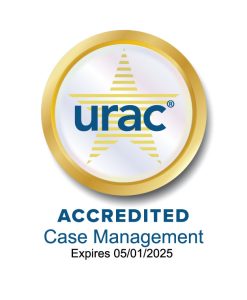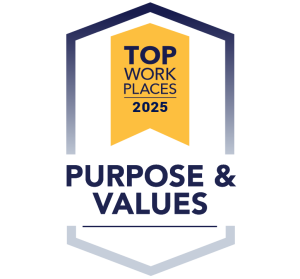By: Cindy Ngo, MSW, Supports Planner; and Megan Bazzett, MS, CPRP, CFRP, CFP Director
Advocacy can take many forms including individual advocacy where a person or group represents the interests of a few or even systemic advocacy where groups faced with a common issue can affect change on a broader scale (for example, working toward a change in policy or legislation). Self-advocacy is the ability for a person or their representative to communicate their interests and then make decisions on the next steps to meet those needs. So why is it important that our participants know how to self-advocate, and how do we, as Supports Planners and Service Coordinators, support and enhance this skill?
 We recently sat down with Megan Bazzett, Director, Community First Programs at The Coordinating Center to learn more about self-advocacy.
We recently sat down with Megan Bazzett, Director, Community First Programs at The Coordinating Center to learn more about self-advocacy.
What are the benefits of self-advocacy?
When a person self-advocates or has someone advocate on their behalf, it gives them a voice and an opportunity to be heard. Our participants are experts in their own interests, so it is important that they have a platform to communicate these interests. Advocacy can support the protection of human rights, act as a catalyst for change, and have a positive impact on others with similar needs.
What are a few strategies to getting started with self-advocacy?
In terms of self-advocacy, participants should educate themselves on the related topics. They should complete their own research and learn what has been done already to address their needs and discover if there are any existing advocacy efforts to accomplish their goals. When engaging in individual advocacy, it is important to remain educated and connect with support networks whether that be peers facing the same issues or support groups and advocacy groups. If engaging in systemic advocacy, people may want to go further and advocate at a broader scale by affecting policy or legislation.
What role can coordinators and supports planners play in supporting individuals and families with self-advocacy?
As Service Coordinators and Supports Planners, we often advocate on behalf of others to different entities to ensure our participant’s service needs are being met. We can also support our participants by ensuring they have as much information about their current situation as possible and connecting them to related resources. We should also encourage participants to practice self-advocacy in their day-to-day life, whether that be during medical appointments, so that they can get treatment that works for them, or during collaborative meetings with their Service Coordinator/Supports Planner, to ensure their service needs are being met. It is important for us to keep our participants informed, educated, and connected to resources so that they effectively support themselves.
Join Megan Bazzett on March 19, 2024, at Noon, for a special webinar on Finding a Voice Through Self-Advocacy. Click HERE to register to attend. This webinar is part of The Coordinating Center’s new Community Enrichment Series – engaging workshops supporting individuals and families to achieve their aspirations for a meaningful life!
Megan Bazzett has 24 years of experience in the human services field and has been with The Coordinating Center for just under two years. As Director, Community First Programs at The Coordinating Center, Megan is responsible for oversight of the Supports Planning services provided to approximately 3,000 Maryland residents. Supports Planning services help eligible older adults and individuals living with disabilities to access home and community-based services. While eligibility requirements vary by program, the range of service and support options include personal assistance services, nurse monitoring, assistive technology, home modifications, home delivered meals, and more.







